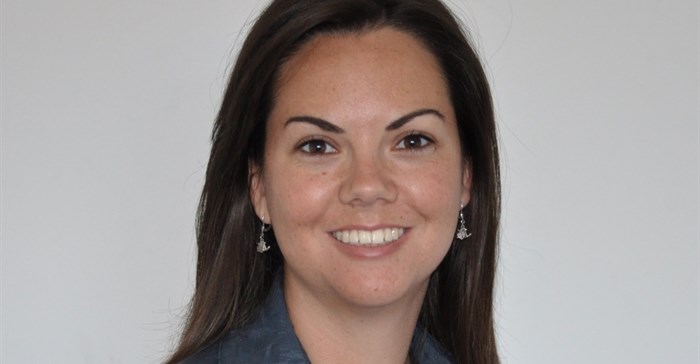Genetic counselling: Helping patients assess the risk of familial disease
As a result, genetic counselling has emerged as a new discipline to help patients make informed choices about healthcare options.
Frieda Loubser is one of a handful of qualified genetic counsellors in South Africa. She explains more about the profession.

 What is genetic counselling?
What is genetic counselling?Loubser: It’s the process of helping people to understand and adapt to the medical, psychological and familial implications of genetic contributions to disease.
 What is genetic counselling?
What is genetic counselling?Loubser: It’s the process of helping people to understand and adapt to the medical, psychological and familial implications of genetic contributions to disease.
This process integrates the following:
- Interpreting family and medical histories to assess the chance of disease occurrence or recurrence.
- Education about inheritance, testing, management, prevention, resources and research.
- Counselling to promote informed choices and adaptation to the risk or condition.
Genetic counsellors are healthcare professionals with unique specialised graduate degrees, who have skills and experience in the areas of both medical genetics and counselling.
 How does genetic counselling benefit patients?
How does genetic counselling benefit patients?Loubser: Patients are empowered to make informed decisions in line with their own values, attitudes and beliefs.
 How does genetic counselling benefit patients?
How does genetic counselling benefit patients?Loubser: Patients are empowered to make informed decisions in line with their own values, attitudes and beliefs.
We work as members of a healthcare team, providing risk assessment, education and support to individuals and families at risk for, or diagnosed with, a variety of inherited conditions. We may also order and interpret genetic testing, provide supportive counselling, and serve as patient advocates.
 How do you qualify to become a genetic counsellor?
How do you qualify to become a genetic counsellor?Loubser: After an undergraduate degree and honours degree, you obtain an MSc (masters) degree in genetic counselling (offered at Wits and UCT). This is followed by an internship at an accredited training institute, then you submit your portfolio to the Health Professions Council of South Africa to apply for registration as a genetic counsellor.
 Are there many in South Africa?
Are there many in South Africa?Loubser: There are currently only 14 actively registered genetic counsellors in South Africa.
 How do you qualify to become a genetic counsellor?
How do you qualify to become a genetic counsellor?Loubser: After an undergraduate degree and honours degree, you obtain an MSc (masters) degree in genetic counselling (offered at Wits and UCT). This is followed by an internship at an accredited training institute, then you submit your portfolio to the Health Professions Council of South Africa to apply for registration as a genetic counsellor.
 Are there many in South Africa?
Are there many in South Africa?Loubser: There are currently only 14 actively registered genetic counsellors in South Africa.
 Are there many in South Africa?
Are there many in South Africa?Loubser: There are currently only 14 actively registered genetic counsellors in South Africa.
Historically, the majority have been employed at academic institutions by the associated university, hospital or laboratory. More recently, we’ve started working with private practices and laboratories.
 How does prenatal counselling help parents with predispositions to genetic conditions?
How does prenatal counselling help parents with predispositions to genetic conditions?Loubser: If there is a known family history, it is ideal to see a genetic counsellor before a pregnancy to allow informed decision making and consideration of all available options.
 How does prenatal counselling help parents with predispositions to genetic conditions?
How does prenatal counselling help parents with predispositions to genetic conditions?Loubser: If there is a known family history, it is ideal to see a genetic counsellor before a pregnancy to allow informed decision making and consideration of all available options.
These options include pre-implantation genetic diagnosis (PGD: IVF and selecting an unaffected embryo for the known condition), gamete donation, adoption and prenatal testing.
Prenatal genetic counselling will include discussion of screening results in detail, emotional support, reviewing the risks and benefits of follow-up diagnostic options, and coordinating any additional testing options that the patient decides upon. The genetic counsellor is also available to help interpret and communicate diagnostic testing results to the couple and has the training and expertise to be particularly helpful when those results are not straightforward.
 What are the most common conditions for which people need counselling?
What are the most common conditions for which people need counselling?
Loubser: Familial cancer (family history of breast and ovarian cancer or colon cancer), cystic fibrosis, screening options in pregnancy (including non-invasive prenatal testing), retinal degenerative disorders, predictive testing for late-onset disorders (such as Huntington disease).
 Do patients have to be referred by doctors or can anyone come for genetic counselling?
Do patients have to be referred by doctors or can anyone come for genetic counselling?
Loubser: As we are not clinicians, it is always preferable to work in consultation with a medical doctor, to ensure that the risks identified are considered in the context of a patient’s medical management. In some cases a referral may not be necessary (for example when a couple are related to each other and wanting to know about genetic implications).
About Nicci Botha
View my profile and articles...